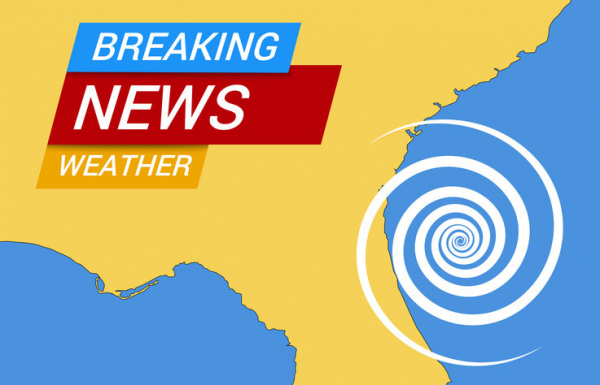
When you live in a coastal area, preparing early for potential hurricanes is a must. Storms can develop quickly, leaving little time to figure out where you’ll be safe or which items to pack if you have to evacuate. And health care necessities, such as medications or medical equipment, are often overlooked in the scramble.
“People might bring their diabetes medication but forget their blood sugar monitor, or bring their hearing aids but forget extra batteries for them,” says Dr. Scott Goldberg, medical director of emergency preparedness at Brigham and Women’s Hospital and a longtime member of a FEMA task force that responds to hurricane-damaged areas.
Here’s some insight on what to expect this hurricane season, and how to prioritize health care in your hurricane kit.
What will the 2024 hurricane season look like?
This year’s hurricane predictions underscore the urgency to start preparations now.
Forecasters with the National Oceanic and Atmospheric Administration’s National Weather Service expect above-normal activity for the 2024 hurricane season (which lasts until November 30).
Meteorologists anticipate 17 to 25 storms with winds of 39 mph or higher, including eight to 13 hurricanes — four to seven of which could be major hurricanes with 111 mph winds or higher.
What kinds of plans should you make?
Preparing for the possibility of big storms is a major undertaking. Long before ferocious winds and torrential rains arrive, you must gather hurricane supplies, figure out how to secure your home, and determine where to go if you need to evacuate (especially if you live in a flood zone). Contact the emergency management department at your city or county for shelter information.
If you’ll need help evacuating due to a medical condition, or if you’ll need medical assistance at a shelter, find out if your county or city has a special needs registry like this one in Florida. Signing up will enable first responders to notify you about storms and transport you to a special shelter that has medical staff, hospital cots, and possibly oxygen tanks.
What should you pack?
While a shelter provides a safe place to ride out a storm, including bathrooms, water, and basic meals, it’s up to you to bring everything else. It’s essential to pack medical equipment and sufficient medications and health supplies.
“It’s natural to just grab the prescription medications in your medicine cabinet, but what if it’s only a two-day supply? It might be a while before you can get a refill. We recommend at least a 14-day or 30-day supply of every prescription,” Dr. Goldberg says. “Talk to your doctor about the possibility of getting an extra refill to keep on standby for your go bag.”
Other health-related items you’ll want to pack include:
- medical supplies you use regularly, such as a blood pressure monitor, heart monitor, CPAP machine, wheelchair, or walker
- over-the-counter medicines you use regularly, such as heartburn medicine or pain relievers
- foods for specific dietary needs, such as gluten-free food if you have celiac disease (if you have infants or children, you’ll need to bring foods they can eat)
- healthy, nonperishable snacks such as nuts, nut butters, trail mix, dried fruit, granola bars, protein bars, and whole-grain bread, crackers, or cereals
- hygiene products such as soap, hand sanitizer, toothbrushes and toothpaste, shampoo, deodorant, infant or adult diapers, lip balm, moist towelettes, and toilet paper — because shelters often run out of it.
Remember the basics
In some ways, you can think of shelter living like camping. You’ll need lots of basic supplies to get through it, including:
- a sleeping bag or blanket and pillow for each person in your family
- clean towels and washcloths
- a few extra changes of clothes per person
- a first-aid kit
- flashlights and extra batteries
- chargers for your electronic gadgets
- rechargeable battery packs.
Bring important paperwork
In addition to supplies, bring important documents such as:
- a list of your medications, vitamins, and supplements (include the name, dose, and frequency of each one)
- a list of the names, addresses, and phone numbers of your primary care provider and any specialists who treat you
- a list of your emergency contacts and their phone numbers
- your pharmacy’s phone number and address
- copies of your birth certificate and driver’s license
- copies of home, car, or life insurance policies
- copies of your health insurance cards
- a copy of your advance directive — which includes your living will and health care proxy form.
“Store these documents on a flash drive. Also make photocopies of them, which are easiest for doctors to consult in an emergency setting. Place them in a plastic zip-top bag to keep them dry,” Dr. Goldberg advises.
Prepare right now
Start today. Gather as many go-bag supplies as you can, including the bags. A small suitcase, backpack, or duffel bag for each person in your family will work well.
And try not to put off these important preparations. “Hurricanes are major stressors. You might be worried, sleep deprived, fatigued, and emotional,” Dr. Goldberg says. “All of that will make it hard to think clearly. You’ll do yourself and your family a favor by having discussions now and getting started on your hurricane plan.”
About the Author

Heidi Godman, Executive Editor, Harvard Health Letter
Heidi Godman is the executive editor of the Harvard Health Letter. Before coming to the Health Letter, she was an award-winning television news anchor and medical reporter for 25 years. Heidi was named a journalism fellow … See Full Bio View all posts by Heidi Godman
About the Reviewer

Howard E. LeWine, MD, Chief Medical Editor, Harvard Health Publishing
Dr. Howard LeWine is a practicing internist at Brigham and Women’s Hospital in Boston, Chief Medical Editor at Harvard Health Publishing, and editor in chief of Harvard Men’s Health Watch. See Full Bio View all posts by Howard E. LeWine, MD

Leave a Reply